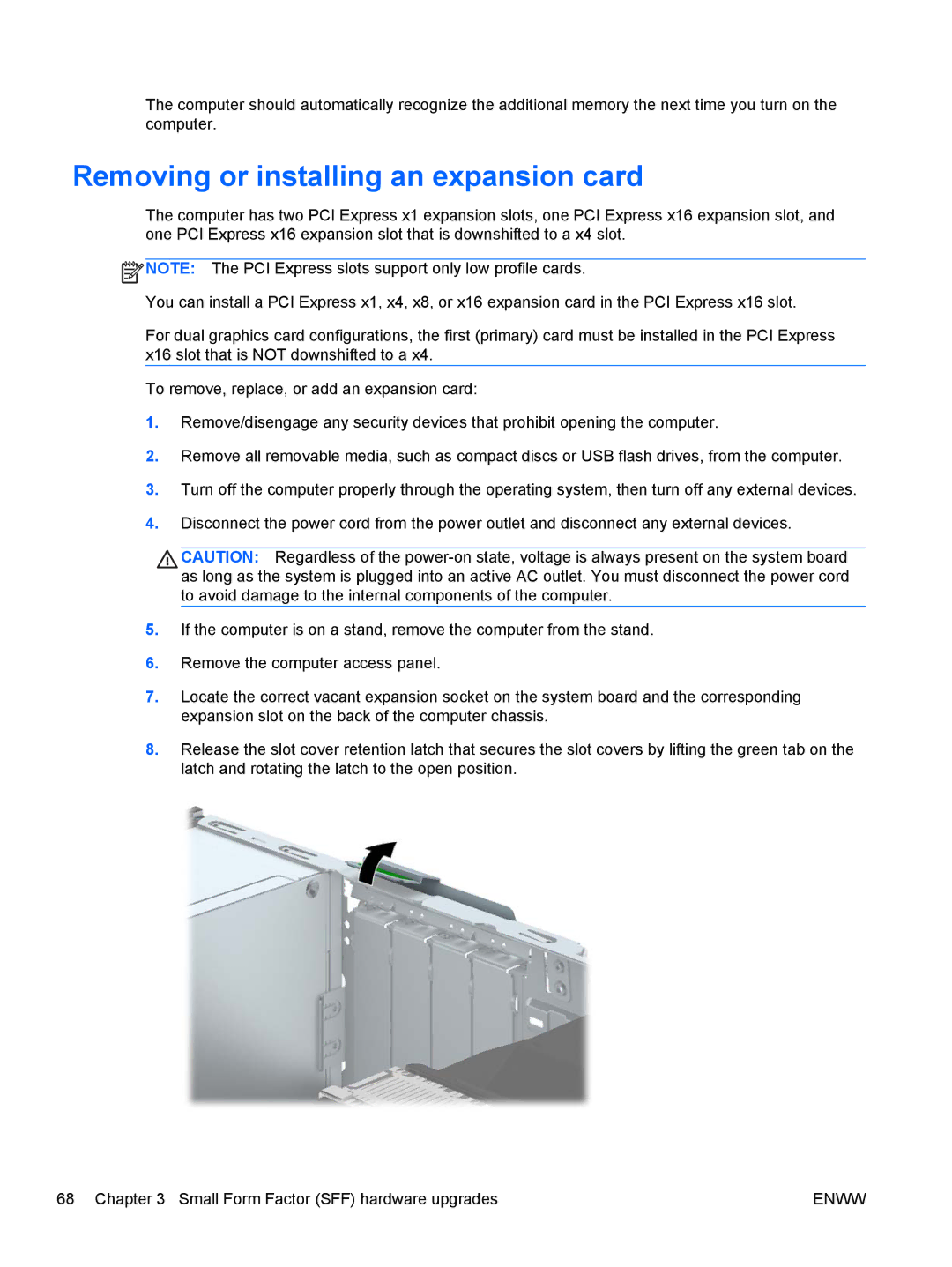
The computer should automatically recognize the additional memory the next time you turn on the computer.
Removing or installing an expansion card
The computer has two PCI Express x1 expansion slots, one PCI Express x16 expansion slot, and one PCI Express x16 expansion slot that is downshifted to a x4 slot.
![]() NOTE: The PCI Express slots support only low profile cards.
NOTE: The PCI Express slots support only low profile cards.
You can install a PCI Express x1, x4, x8, or x16 expansion card in the PCI Express x16 slot.
For dual graphics card configurations, the first (primary) card must be installed in the PCI Express x16 slot that is NOT downshifted to a x4.
To remove, replace, or add an expansion card:
1.Remove/disengage any security devices that prohibit opening the computer.
2.Remove all removable media, such as compact discs or USB flash drives, from the computer.
3.Turn off the computer properly through the operating system, then turn off any external devices.
4.Disconnect the power cord from the power outlet and disconnect any external devices.
CAUTION: Regardless of the
5.If the computer is on a stand, remove the computer from the stand.
6.Remove the computer access panel.
7.Locate the correct vacant expansion socket on the system board and the corresponding expansion slot on the back of the computer chassis.
8.Release the slot cover retention latch that secures the slot covers by lifting the green tab on the latch and rotating the latch to the open position.
68 Chapter 3 Small Form Factor (SFF) hardware upgrades | ENWW |
